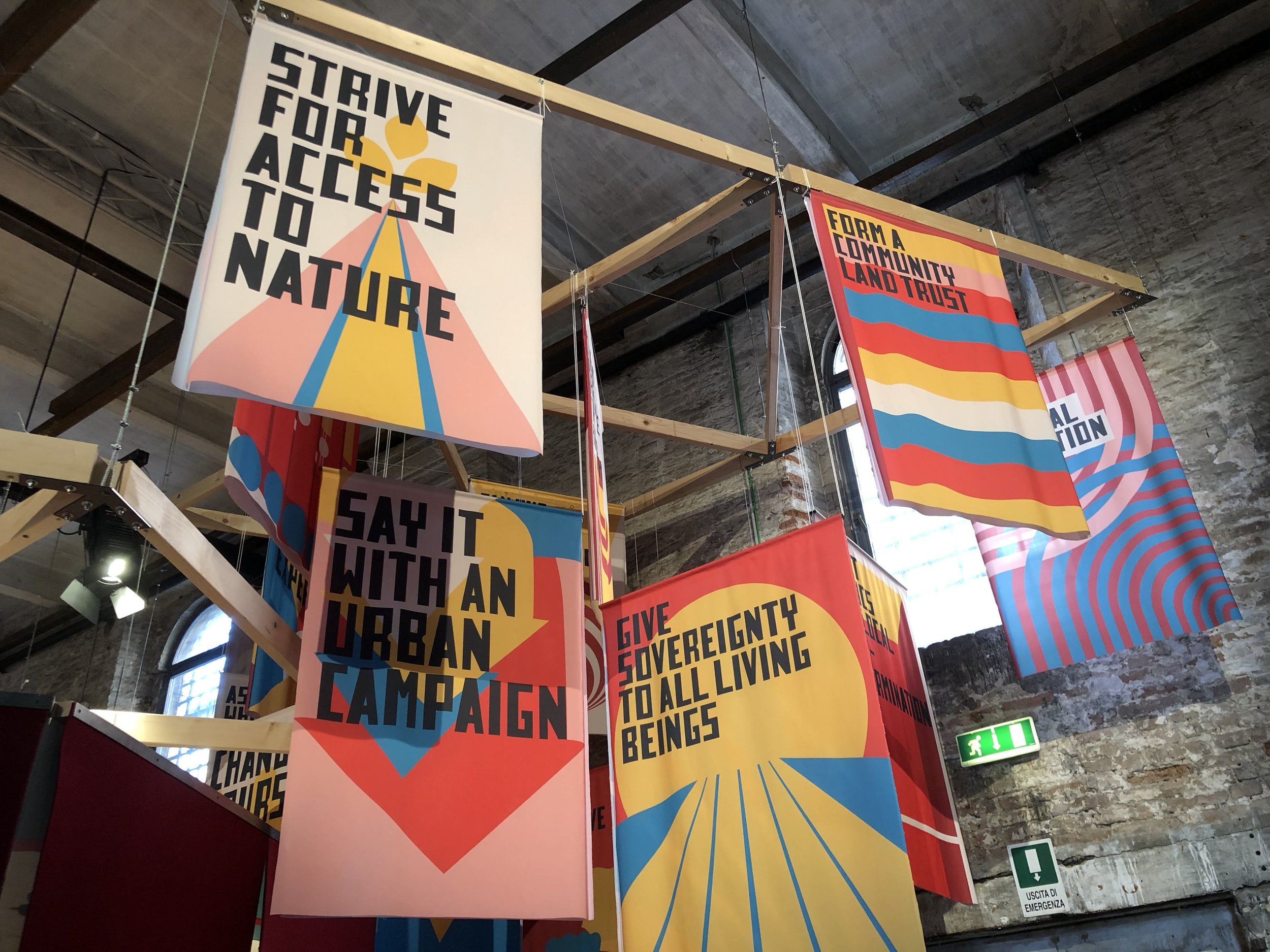2020-2022 / Systems-led Design / Democratic Society (Berlin, Germany)
I was a Design and Research Specialist in the Democratic Society (“Demsoc”) Climate Programme team from 2020-2022, based in Berlin, Germany. My work ranged across framework development, to leading design and research in climate action programs with government, civil society organisations, and communities across Europe. My first major project was developing a Climate Democracy Model, tools for a cities and regions to assess progress towards climate resilience through democratic means. The Model is published in the OECD Innovation Directory, and was showcased at the 2022 Creative Bureaucracy Festival.
I also led design and research for climate action programmes across Europe for community-led energy transition and nature-based solutions, with EIT Climate-KIC and Dark Matter Labs and other civil society organisations, as part of Healthy, Clean Cities Deep Demonstrations and LIFE-PACT, EU Commission-funded programmes for accelerating cities towards carbon neutrality and climate resilience. The energy project was a finalist in the IOPD 2022 Best Practice in Citizen Participation Award.
During my time at Demsoc I also wrote about Every One Every Day’s participatory ecosystem.
Source: City of Amsterdam
Community-led energy transition and the enabling role of government (Amsterdam)
The City of Amsterdam are committed to decarbonisation and sustainable energy generation, with a goal of reducing CO2 emissions by 55% in 2030 and 95% in 2050. ‘Energy communities’ are leading the city’s transition to decarbonisation and climate resilience, requiring the city to develop a more integrated community engagement approach, and build capabilities and experimental mindsets enabling communities and individuals to have greater agency in their climate futures. The City of Amsterdam was one of 14 European local governments taking part in EIT Climate-KIC’s Healthy, Clean Cities Deep Demonstration programme. Demsoc worked alongside Dark Matter Labs, Bankers Without Boundaries, and Material Economics.
I was part of a team working across Amsterdam, Brussels and Leuven, leading design of strategic learning and collaboration experiments with local government and design partners, and a series of community engagements to determine aspirations and needs for energy transition. This resulted in development of a ‘Toolbox for Change’ setting out the enabling role of government for a democratic energy transition, centering needs and actions of communities. The Toolbox was adopted by the incoming 2022 Amsterdam coalition. The work demonstrated innovative, participatory methods for community empowerment and the change possible when citizens and grassroots groups progress change from the ground-up. It has also showed how active participation of the public can improve public policy. The project was a finalist in the IOPD 2022 Best Practice in Citizen Participation Award. I also co-authored an article for Apolitical on the project, calling for the enabling role of government.
Democratic approaches in Nature-based Solution implementation (Leuven, Madrid, Kraków)
I was part of a Demsoc team working with local governments and pilot sites in Leuven (Belgium), Madrid (Spain) and Kraków (Poland) on the LIFE-PACT project for Nature-based Solution (NbS) implementation. Many local governments are keen on introducing NbS into their cities but do not know how to go about it and where to start. Demsoc brought democratic and participatory approaches to the work, connecting civil servants with communities and championing inclusive collaboration. We worked with Dark Matter Labs as fellow design partners.
My main responsibility was designing and managing the LIFE Participation Hub, a platform supporting expanded participation in pilot sites and connecting people, places and processes, including through Hub on the Road activities in the three cities. This work led to the development of NbS “Practices”, ways for cities to spread and propagate NbS locally by building up conditions, relationships and inclusive and collaborative processes.
Framework for mapping actors, capacities and competencies for climate resilience
I led the design and development of a Climate Democracy Model to show the impact of putting citizens at the centre of local climate action. The Model responds to the gap in pan-European efforts to democratise climate action, providing terminology and models to shift cities from a solely technocratic to a democratic approach to climate resilience. It is intended to evolve ‘climate democracy’ discourse with funders, public sector and civil society, to scale local initiatives to European potentials.
In practice the Model is a set of interconnected tools for cities to use to assess their progress towards climate resilience based on democratic ‘factors’: Actor Types & Interactions, Canopy for Climate Resilience, Competencies for Climate Democracy, and Landscape Analysis. A glossary was also developed.
The first version of the Model was developed through internal research with Demsoc ‘local connectors’, staff working across 14 cities in the EIT Climate-KIC Healthy, Clean Cities Deep Demonstrations. The second version of the Model was developed through further engagement with government and design partners, and iteration by the Demsoc team.
The Model is published in the OECD Innovation Directory, and was showcased at the 2022 Creative Bureaucracy Festival.





